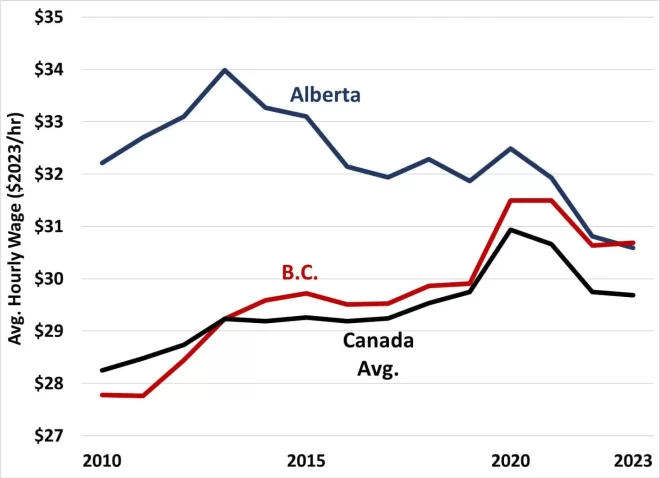Submission to B.C. Labour Relations Code Review
The B.C. government is undertaking a regular five-year review of its labour relations code, that governs labour standards, union activity, and collective bargaining. As part of this review, Centre for Future Work Director Jim Stanford was invited to appear before the review panel as an expert witness.
His presentation, titled Growth With Inclusion: An Overview of B.C.’s Recent Economic and Labour Market Performance, reviewed numerous indicators of recent trends in employment, growth, and productivity in the B.C. economy. It found that by several metrics, B.C.’s economy has performed better than any other Canadian province.
This data is an important counter to complaints from business lobbyists (including stated in business submissions to this review) that B.C.’s economy is weak and getting weaker. These arguments are invoked to justify business calls for weakening labour standards (such as reversing recent B.C. reforms around union certification procedures, and abandoning B.C.’s prohibition against replacement workers in work stoppages).
Stanford’s submission noted that thanks in part to these and other wage-friendly policies, wage growth in B.C. has been stronger than any other province in recent years, and average wages there have increased over the past five years despite the COVID-19 pandemic and subsequent rise of inflation. Indeed, B.C. now boasts the highest wage for hourly employees in the country, displacing Alberta from that position in 2023.
B.C. is Now Canada’s Wage Leader

While business groups may bemoan this achievement as proof that labour costs are “too high,” Stanford’s testimony also showed that business profits have grown strongly in B.C., business investment in capital and innovation has been stronger than any other province, and the share of total labour compensation in overall provincial GDP has declined, despite healthy wage growth.
While Stanford’s presentation highlighted the progress achieved on wages and poverty reduction, he also stressed that many workers are not achieving adequate compensation or job security (especially those in precarious or non-standard positions, including digital platform roles). That makes it important for provincial labour laws to be strengthened further, with measures (like sectoral bargaining) to extend collective bargaining rights to more workers.
Indeed, as part of his presentation, Stanford also summarized key findings from his research paper on the Economic Benefits of Sectoral and Broader-Based Bargaining. That paper was presented to the review as part of the B.C. Federation of Labour’s submission.
Please see Stanford’s full presentation, Growth With Inclusion: An Overview of B.C.’s Recent Economic and Labour Market Performance.
Jim Stanford
Jim Stanford is Economist and Director of the Centre for Future Work, based in Vancouver, Canada. Jim is one of Canada’s best-known economic commentators. He served for over 20 years as Economist and Director of Policy with Unifor, Canada’s largest private-sector trade union.
